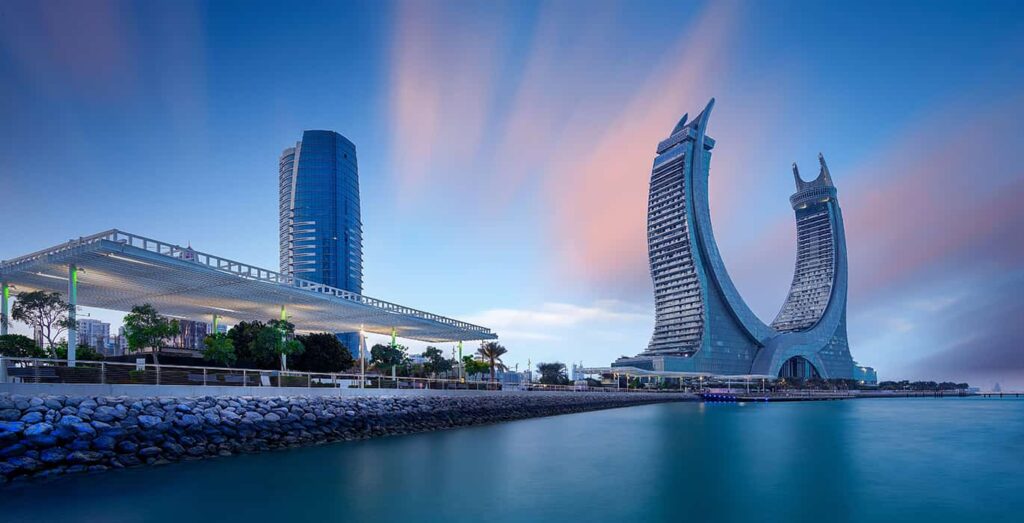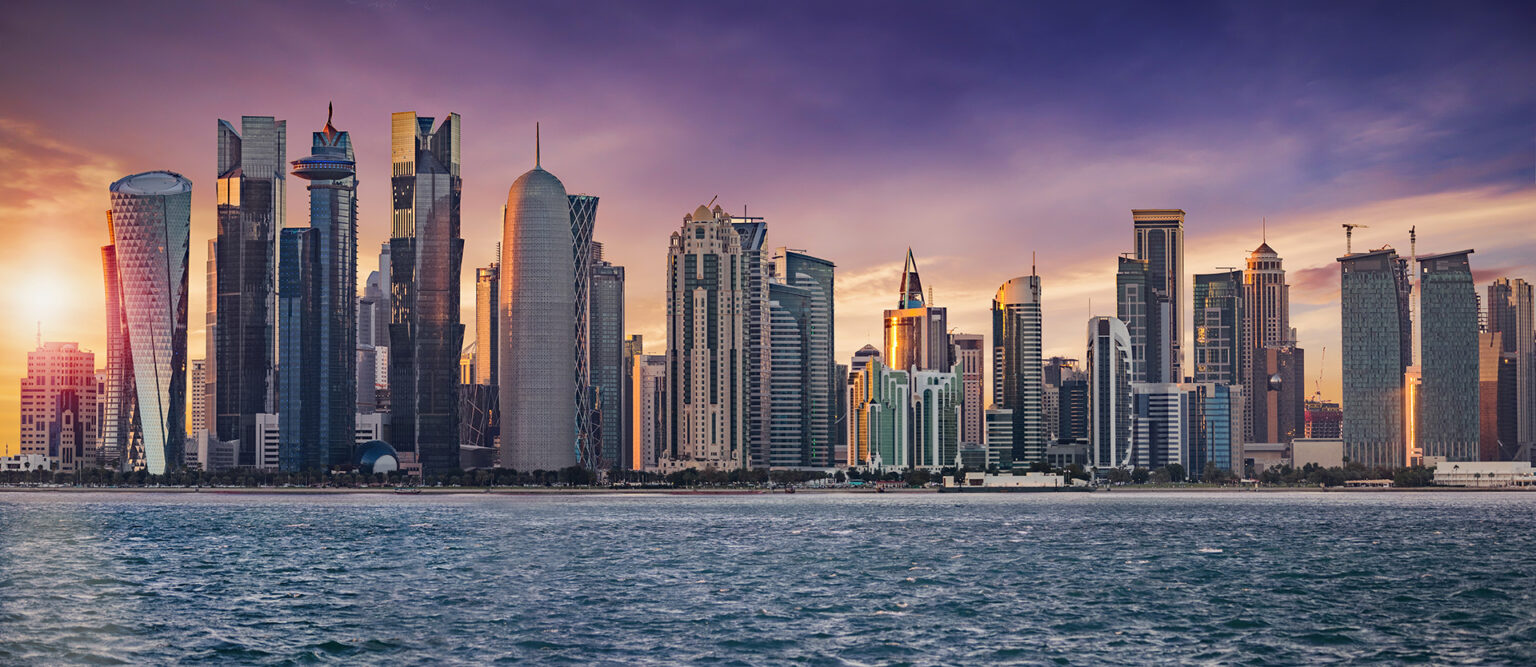Qatar is rapidly solidifying its reputation as a premier destination for global investors. Through a series of strategic initiatives aimed at economic diversification, the nation is attracting substantial foreign direct investment (FDI) and fostering a dynamic business environment. With a forward-thinking leadership, pro-business policies, and a commitment to innovation, Qatar is positioning itself as a key player in the global investment landscape.
Economic Diversification: A National Priority
Historically reliant on its abundant oil and gas reserves, Qatar has embarked on an ambitious journey to diversify its economy. The launch of the Third National Development Strategy in early 2025 underscores this commitment, targeting an average annual real non-hydrocarbon growth of 4% through 2030. This initiative aligns with Qatar’s National Vision 2030, which aims to transform the country into a sustainable and knowledge-based economy.

Key sectors identified for expansion include manufacturing, tourism, logistics, education, healthcare, financial services, and information technology. By reducing dependence on hydrocarbons, Qatar is creating a more resilient economy that can weather fluctuations in global energy markets. The government has introduced various incentives, including tax breaks, relaxed foreign ownership laws, and simplified business registration processes to attract investors from across the globe.
Attracting Venture Capital: The $1 Billion ‘Fund of Funds’
A cornerstone of Qatar’s diversification efforts is the establishment of a $1 billion “fund of funds” by the Qatar Investment Authority (QIA). This initiative aims to bridge funding gaps in series A, B, and C venture capital rounds within the country. To date, nearly $500 million has been invested in six venture capital firms, with two already setting up offices in Doha. The program not only provides capital but also cultivates a supportive ecosystem for startups and entrepreneurs.
By fostering a thriving startup scene, Qatar is encouraging innovation and entrepreneurship, ensuring that new businesses have access to the resources needed to succeed. With a growing number of accelerators, incubators, and mentorship programs, the country is fast becoming a hub for tech and digital economy investments.
Public-Private Partnerships: Catalyzing Growth
Public-private partnerships (PPPs) play a pivotal role in Qatar’s economic strategy. The enactment of the PPP law in May 2020 has instilled confidence among investors by offering a predictable framework for collaboration. Sectors such as education, healthcare, real estate, tourism, and energy present promising opportunities for PPPs, fostering a business ecosystem that emphasizes productivity and competitiveness.
The Qatari government actively engages with the private sector to execute large-scale projects, ensuring efficiency and innovation. By leveraging private sector expertise and resources, Qatar is accelerating its infrastructure development while reducing financial risks for the government. These partnerships are instrumental in delivering high-quality services and driving long-term economic growth.
Financial Sector Development: Becoming a Regional Hub
Qatar is making significant strides to position itself as a regional financial hub. The Qatar Financial Centre (QFC) has been instrumental in attracting international financial institutions by offering a conducive business environment. Recent collaborations with global tech giants, including Microsoft and Google, highlight Qatar’s commitment to innovation and the development of key sectors such as energy, healthcare, and transport.
With world-class regulatory frameworks, a robust banking sector, and a strategic location, Qatar is attracting major financial players. The development of financial services, including fintech and digital banking, is further enhancing the country’s appeal as a financial hub in the Middle East.
Tourism and Infrastructure: Building a Global Destination
The successful hosting of the 2022 FIFA World Cup showcased Qatar’s capabilities on the world stage, significantly boosting its tourism sector. Visitor numbers surged to over four million in 2024, up from just 600,000 in 2021. This momentum continues with investments in infrastructure projects like Hamad International Airport, Hamad Port, and the Doha Metro, enhancing connectivity and supporting economic growth.
Qatar is leveraging its world-class tourism infrastructure to attract business and leisure travelers. Investments in luxury hotels, cultural attractions, and entertainment facilities are making the country a sought-after destination. Major events such as international sports tournaments, business expos, and cultural festivals are further reinforcing Qatar’s position as a leading tourism hub.
Sports Investments: Expanding Global Influence
Qatar’s influence in the global sports arena is expanding through strategic acquisitions. Qatar Sports Investments (QSI), owner of Paris Saint-Germain, has expressed interest in acquiring Málaga C.F., a Spanish football club. This move aligns with Qatar’s broader strategy to diversify its investment portfolio and strengthen its presence in international sports.
The country has also invested heavily in developing local sports infrastructure, encouraging grassroots programs, and hosting prestigious events such as the Asian Games and Formula 1 races. These investments not only enhance Qatar’s global standing but also contribute to economic diversification by creating job opportunities and boosting related industries.
Aviation Partnerships: Enhancing Global Connectivity
In the aviation sector, Qatar Airways’ partnership with Virgin Australia exemplifies efforts to enhance global connectivity. The Australian Competition and Consumer Commission (ACCC) approved this alliance, which will introduce 28 weekly return flights between Doha and major Australian cities. This initiative is projected to contribute $3 billion to the Australian economy over the next five years, offering passengers more choices and fostering economic ties.
Qatar’s strategic location makes it a crucial transit hub between Europe, Asia, and Africa. By strengthening airline partnerships and expanding its aviation sector, the country is positioning itself as a leading global travel hub. Enhanced connectivity supports trade, tourism, and business, further reinforcing Qatar’s economic ambitions.
Supporting the Private Sector: Loan Forgiveness Initiatives
To further stimulate private sector growth, Qatar has implemented measures such as forgiving loans provided to companies during the COVID-19 pandemic. These initiatives aim to strengthen businesses affected by the pandemic, reinforcing the government’s dedication to economic diversification and job creation.
By easing financial burdens on businesses, Qatar is fostering a resilient private sector capable of driving innovation and employment. Small and medium-sized enterprises (SMEs) are particularly benefiting from these policies, as they form a crucial part of Qatar’s economic fabric.
Conclusion
Qatar’s multifaceted approach to economic diversification, encompassing substantial investments in various sectors, strategic partnerships, and supportive policies, is successfully positioning the nation as a premier destination for global investors. These efforts not only enhance Qatar’s economic resilience but also contribute to its vision of a sustainable, knowledge-based economy.
With a pro-business environment, cutting-edge infrastructure, and a commitment to innovation, Qatar is creating a future-ready economy that attracts global investors. The country’s strategic investments in technology, finance, sports, and tourism are setting the stage for long-term prosperity, making Qatar an increasingly attractive destination for businesses and investors worldwide.Investors Flock to Qatar Amid Economic Diversification EffortsInvestors Flock to Qatar Amid Economic Diversification Efforts
Qatar Mediates Talks Between Congo and Rwanda Amid Rising Rebel Activity



